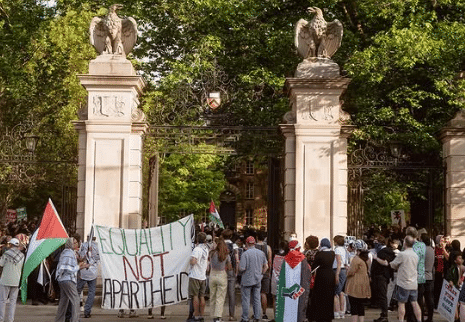How Pro-Palestine Activists At Princeton Got Their Charges Dropped
As the genocide in Gaza continues, imperialist governments that have made Israel’s crimes possible are escalating their attacks on the movement for Palestine. From the targeting of international students to the recent firing of four CUNY faculty over Palestine activism, universities remain an important site of struggle against the genocide.
Despite the repression, there have been victories which show that it pays to take up the fight against these attacks on the movement for Palestine. One example is at Princeton University, where 13 activists from the Princeton community recently got charges dropped after more than a year.



